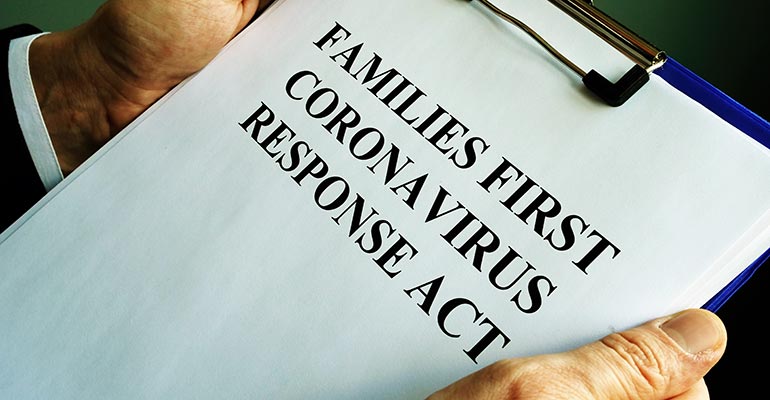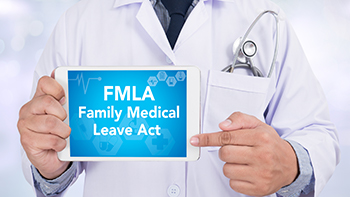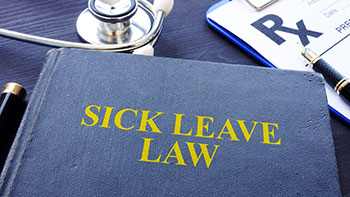
Important FFCRA Update
What You Need to Know About Updates to the Families First Coronavirus Response Act
In March 2020, Congress passed into law the Department of Labor’s (DOL) Families First Coronavirus Response Act (FFCRA). On March 18, 2020, the president signed the FFCRA, with the legislation going into effect on April 1, 2020, and lasting through December 31, 2020.
The FFCRA brings emergency family and medical leave, as well as paid sick leave, for many employees across the country. It contained a number of detailed requirements that limited access to the benefits for numerous employees and families in the United States. Shortly after the legislation was passed and signed into law, the State of New York challenged some of the provisions by filing a lawsuit.
Important Update to the FFCRA

On August 3, 2020, the Southern District of New York (SDNY), a federal U.S. District Court, struck down four provisions of the Families First Coronavirus Response Act. State of New York v. U.S. Department of Labor et al., No. 1:20-cv-03020 (S.D. N.Y. Aug. 3, 2020).
These four provisions are:
- The requirement that employees must secure consent for intermittent leave for certain qualifying reasons
- The requirement that documentation be provided before taking leave
- The exclusion from employee benefits whose employers do not have work for them
- The definition of who qualifies for the healthcare provider exemption
The rest of the FFCRA was left intact as written. Effective September, 16, 2020, new regulations issued by the DOL took effect and clarified the provisions described above. Further blog posts will describe these regulatory changes.
What Does This Mean for Employers and Employees?
Due to the nature of the COVID-19 pandemic, there was an immediacy for Congress to do something to help working families. In this rush, which is not uncommon, there were flaws in the legislation.
Employers who were following the previous legislation and regulations may now find themselves confused or, in certain circumstances, not follow the revised law due to either ignorance or willfulness.
Now, with these four provisions being struck down, and new regulations in place, many more employees across the country will be eligible for emergency family and medical leave, as well as paid sick leave. This is great news for employee rights. It is important for Florida employees to understand the changes to the FFCRA because it can make a significant difference in their financial situation for the near future.
Legal Assistance With Employee Rights & the FFCRA

When working families are economically suffering, and there is current legislation that can help them, it is critical to get them the financial assistance they need and are lawfully owed. The FFCRA is quite complex, though, and it is difficult for both employers and employees to fully comprehend. The Department of Labor does have a questions and answers page on their website. It is lengthy.
Have you been refused benefits of the FFCRA by your employer? Have you been terminated due to COVID-19? We are closely tracking the ever-changing status of the law and stand ready to evaluate your particular circumstances.
Wenzel Fenton Cabassa, P.A. are employee rights attorneys that help workers across the State of Florida get justice and hold employers accountable who violate the law. From wrongful termination to violations of the FMLA, our employment lawyers are with you every step of the way and lead as your legal advocate.
We are dedicated employment lawyers with in-depth expertise and experience and navigate the legal system proficiently regarding complex employment law.
Please Note: At the time this article was written, the information contained within it was current based on the prevailing law at the time. Laws and precedents are subject to change, so this information may not be up to date. Always speak with a law firm regarding any legal situation to get the most current information available.








